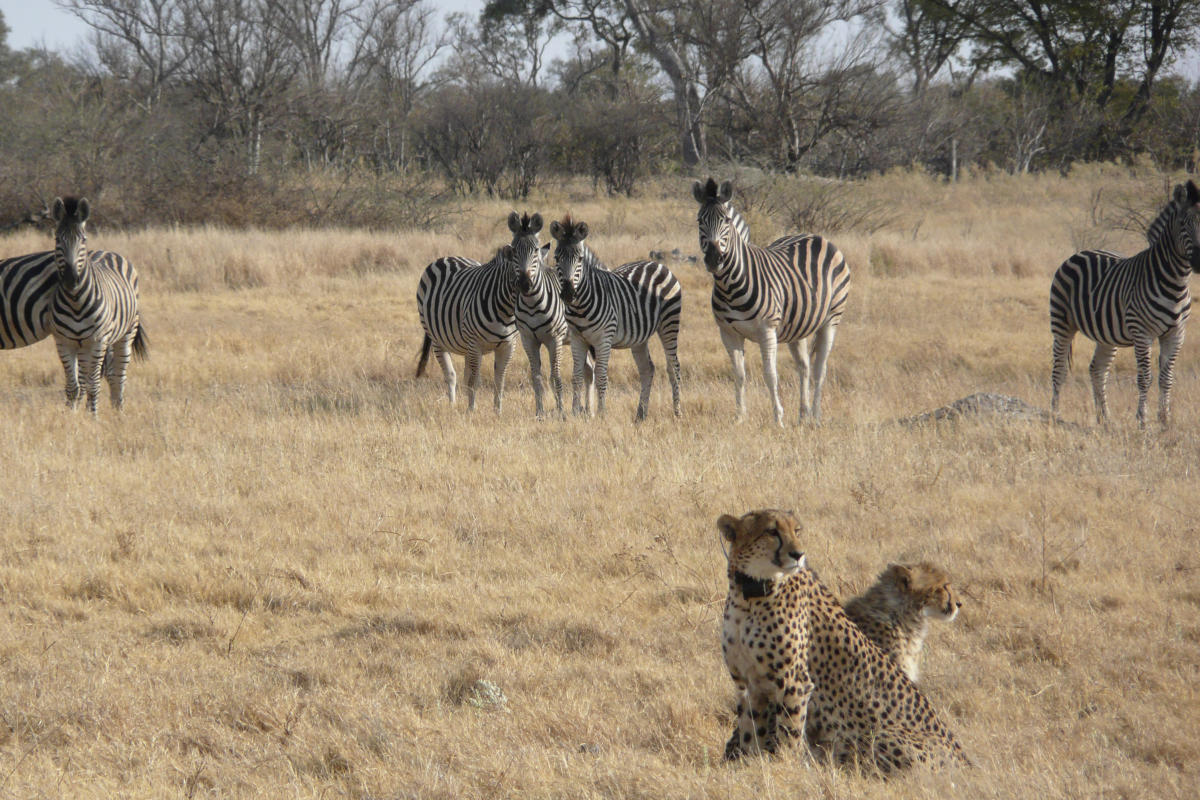Cheetahs, known for their exceptional speed, are predominantly daytime hunters, but a recent study has revealed that they adjust their hunting patterns to dawn and dusk during warmer weather. This change in behavior, however, puts them at greater risk of encountering nocturnal predators such as lions and leopards, leading to potential conflicts.
The University of Washington biologist Briana Abrahms, a co-author of the study published in Proceedings of the Royal Society B., highlighted the impact of changing temperatures on large carnivore behavior patterns and species dynamics. While cheetahs exclusively consume fresh meat, lions and leopards are known to scavenge from smaller predators, including the cheetahs’ kills.
According to behavioral biologist Bettina Wachter, who leads the Cheetah Research Project at the Leibniz Institute for Zoo and Wildlife Research, lions and leopards often attempt to steal a cheetah’s kill, with the cheetahs opting to avoid confrontation and simply leaving the scene.
Hunting at different times of day has historically been a strategy to minimize interactions between predator species in the northern Botswana region, but the study found that on extremely hot days, cheetahs became more nocturnal, increasing overlapping hunting hours with their rivals.
Co-author Kasim Rafiq, a biologist at the University of Washington and the Botswana Predator Conservation Trust, emphasized the implications of these behavioral changes, stating that there’s a higher likelihood of unfavorable encounters and reduced food availability for the cheetahs.
The study, which involved tracking 53 large carnivores with GPS collars and recording their activities over eight years, revealed that temperature fluctuations significantly influenced their behavior. The researchers believe that these findings provide insights into the potential impact of climate change on wildlife.
Researchers plan to further investigate encounters between large carnivores by using audio-recording devices and accelerometers. In addition to natural competition with other predators, cheetahs are also facing threats from habitat fragmentation and conflicts with humans.
Cheetahs, the fastest land animals and the rarest big cats in Africa, are already under significant pressure, with fewer than 7,000 left in the wild. Wachter stressed the criticality of these climate-induced changes, particularly in regions like Botswana, Namibia, and Zambia, where cheetahs are predicted to face much warmer conditions in the future. The study highlights the urgency of conservation efforts in safeguarding these magnificent creatures.


